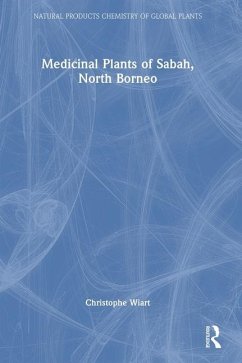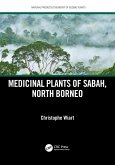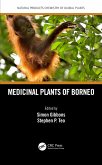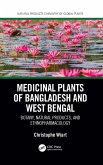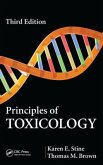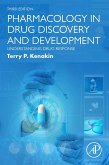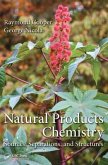Researchers in the field of natural product chemistry and pharmacology focus on discovering new drugs from medicinal plants. The medicinal plants of Sabah (North Borneo), many of which are found in all of Asia and the Pacific, represent a vast array of resources that could be used for the discovery of drugs and the development of cosmetics as well as functional food. No other book focuses on the medicinal plants from this part of the globe in such depth. The author is well known in natural products and this text will appeal to a global audience in presenting the botanical description, chemical constituents, pharmacology, pharmaceutical, cosmetic, and functional food potentials of these plants.
Features:
Describes in a phylogenetic order the habitats, distributions, botanical descriptions, local names, uses, chemical constituents, pharmacological activities, and toxic effects of more than 250 species of medicinal plants of SabahProvides a selection of botanical plates of medicinal plants endemic to Sabah, hand-drawn by the authorProvides comment sections to invite further research on the topic of the development of drugs, dietary products, and cosmetics from Sabah medicinal plants
Features:
Describes in a phylogenetic order the habitats, distributions, botanical descriptions, local names, uses, chemical constituents, pharmacological activities, and toxic effects of more than 250 species of medicinal plants of SabahProvides a selection of botanical plates of medicinal plants endemic to Sabah, hand-drawn by the authorProvides comment sections to invite further research on the topic of the development of drugs, dietary products, and cosmetics from Sabah medicinal plants
Foreword
In the heart of the lush landscapes of Sabah, North Borneo, a tapestry of traditional knowledge intertwines with the botanical wonders of the region, revealing a treasure trove of medicinal plants that have sustained communities for generations. "The Medicinal Plants of Sabah (North Borneo)" unfolds as a comprehensive exploration, offering an unprecedented journey into the intricate realms of botany, ethnopharmacology, and pharmacology, encompassing the diverse healing traditions rooted in this enchanting land.
This volume is more than a collection of facts; it is a meticulous compilation of over 250 plants, each revealing its botanical secrets and the profound role it plays in the traditional medical systems of Sabah. For each plant featured, readers will encounter a wealth of information-from botanical classifications to synonyms, scientific names, local nomenclature, common names, habitat characteristics, distribution patterns, and botanical descriptions that breathe life into the pages.
Beyond the botanical canvas, this book delves into the cultural and healing tapestry of Sabah by unraveling the traditional medicinal uses of each plant. It provides a window into the pharmacological and phytochemical complexities that contribute to the therapeutic potential of these botanical gems. With a keen eye on safety, the volume explores toxicity aspects, offering a balanced perspective through insightful comments that guide readers through the labyrinth of herbal knowledge.
The distinctive features of this book further enhance its value as an indispensable reference for those immersed in the realm of herbal remedies, over-the-counter medications, and the pursuit of therapeutic molecules derived from the diverse flora of the Asia-Pacific region. The inclusion of phylogenetic presentations adds an evolutionary perspective, enriching the understanding of the interconnections between these medicinal plants.
In addition to its wealth of content, this volume presents more than 50 hand-crafted botanical illustrations, a testament to the commitment to visually depict the essence of each plant. The carefully selected bibliographical references pave the way for further exploration, and serve as a valuable guide for current research and future endeavours.
Designed as a research tool, this book is tailored for postgraduates, academics, and professionals in the pharmaceutical, herbal, and nutrition industries. It extends an invitation to delve into the intricate world of Sabah's medicinal flora, fostering not only knowledge but also a deeper connection with the ongoing developments in therapeutic science. It is a compass to guide enthusiasts through the fascinating and timely subject of the development of flagship and medicinal herbs from the Asia-Pacific region.
May this journey through the pages of "The Medicinal Plants of Sabah (North Borneo)," pique your curiosity, ignite your passion for medicinal plants, and serve as your guide in exploring the natural pharmacopoeia that Sabah generously offers.
Assoc. Prof. Dr. Fiffy Hanisdah Saikim
Director
Institute for Tropical Biology and Conservation,
Universiti Malaysia Sabah,
Jalan UMS,
88400 Kota Kinabalu,
Sabah.
In the heart of the lush landscapes of Sabah, North Borneo, a tapestry of traditional knowledge intertwines with the botanical wonders of the region, revealing a treasure trove of medicinal plants that have sustained communities for generations. "The Medicinal Plants of Sabah (North Borneo)" unfolds as a comprehensive exploration, offering an unprecedented journey into the intricate realms of botany, ethnopharmacology, and pharmacology, encompassing the diverse healing traditions rooted in this enchanting land.
This volume is more than a collection of facts; it is a meticulous compilation of over 250 plants, each revealing its botanical secrets and the profound role it plays in the traditional medical systems of Sabah. For each plant featured, readers will encounter a wealth of information-from botanical classifications to synonyms, scientific names, local nomenclature, common names, habitat characteristics, distribution patterns, and botanical descriptions that breathe life into the pages.
Beyond the botanical canvas, this book delves into the cultural and healing tapestry of Sabah by unraveling the traditional medicinal uses of each plant. It provides a window into the pharmacological and phytochemical complexities that contribute to the therapeutic potential of these botanical gems. With a keen eye on safety, the volume explores toxicity aspects, offering a balanced perspective through insightful comments that guide readers through the labyrinth of herbal knowledge.
The distinctive features of this book further enhance its value as an indispensable reference for those immersed in the realm of herbal remedies, over-the-counter medications, and the pursuit of therapeutic molecules derived from the diverse flora of the Asia-Pacific region. The inclusion of phylogenetic presentations adds an evolutionary perspective, enriching the understanding of the interconnections between these medicinal plants.
In addition to its wealth of content, this volume presents more than 50 hand-crafted botanical illustrations, a testament to the commitment to visually depict the essence of each plant. The carefully selected bibliographical references pave the way for further exploration, and serve as a valuable guide for current research and future endeavours.
Designed as a research tool, this book is tailored for postgraduates, academics, and professionals in the pharmaceutical, herbal, and nutrition industries. It extends an invitation to delve into the intricate world of Sabah's medicinal flora, fostering not only knowledge but also a deeper connection with the ongoing developments in therapeutic science. It is a compass to guide enthusiasts through the fascinating and timely subject of the development of flagship and medicinal herbs from the Asia-Pacific region.
May this journey through the pages of "The Medicinal Plants of Sabah (North Borneo)," pique your curiosity, ignite your passion for medicinal plants, and serve as your guide in exploring the natural pharmacopoeia that Sabah generously offers.
Assoc. Prof. Dr. Fiffy Hanisdah Saikim
Director
Institute for Tropical Biology and Conservation,
Universiti Malaysia Sabah,
Jalan UMS,
88400 Kota Kinabalu,
Sabah.

